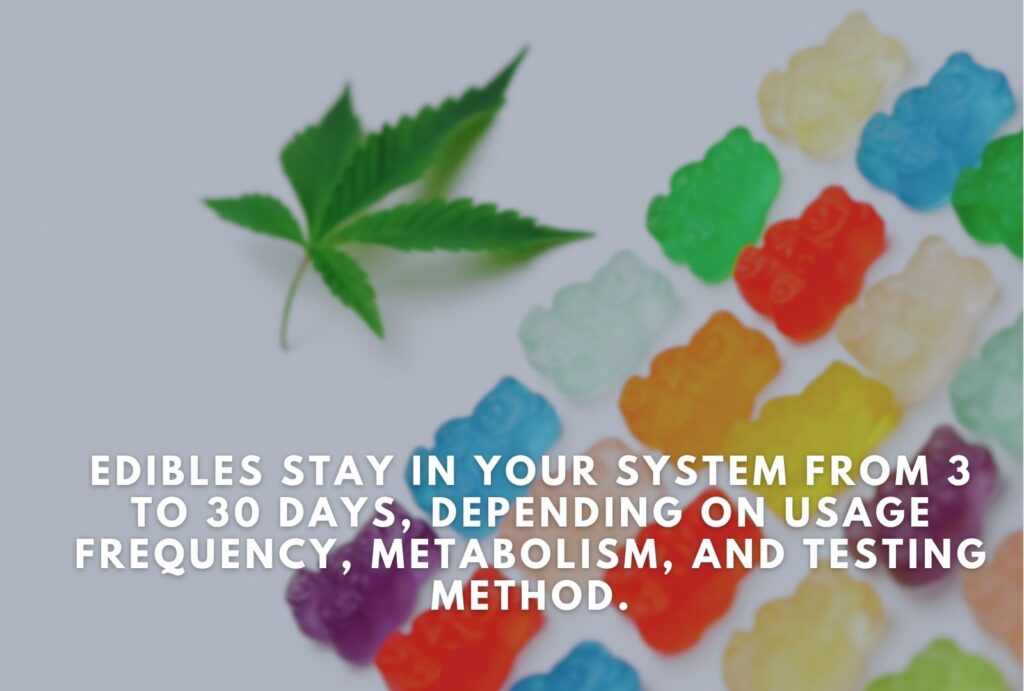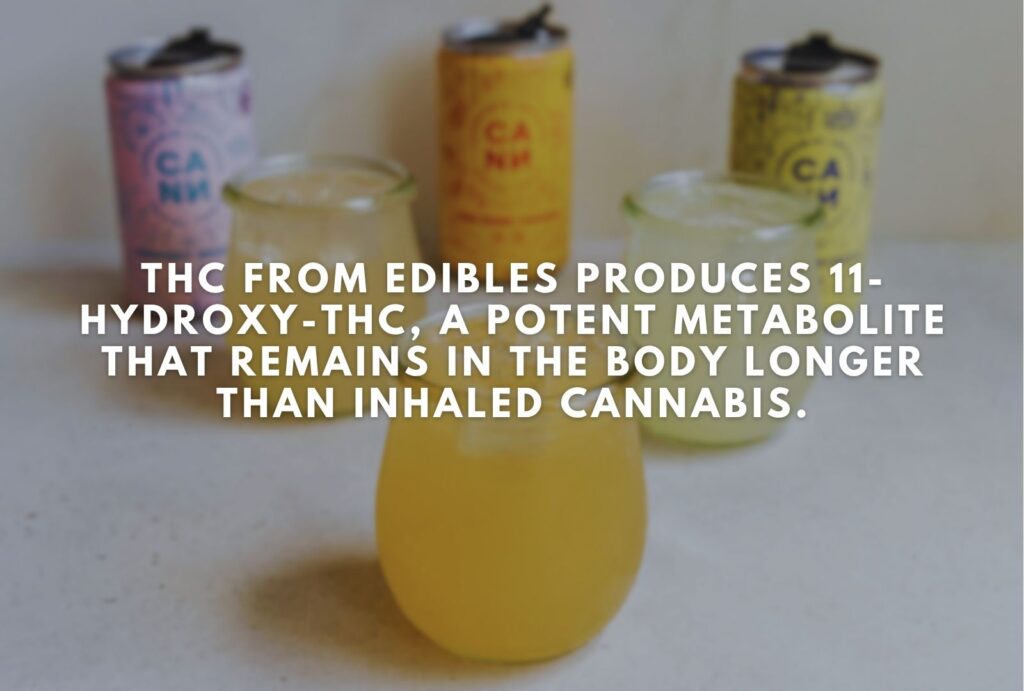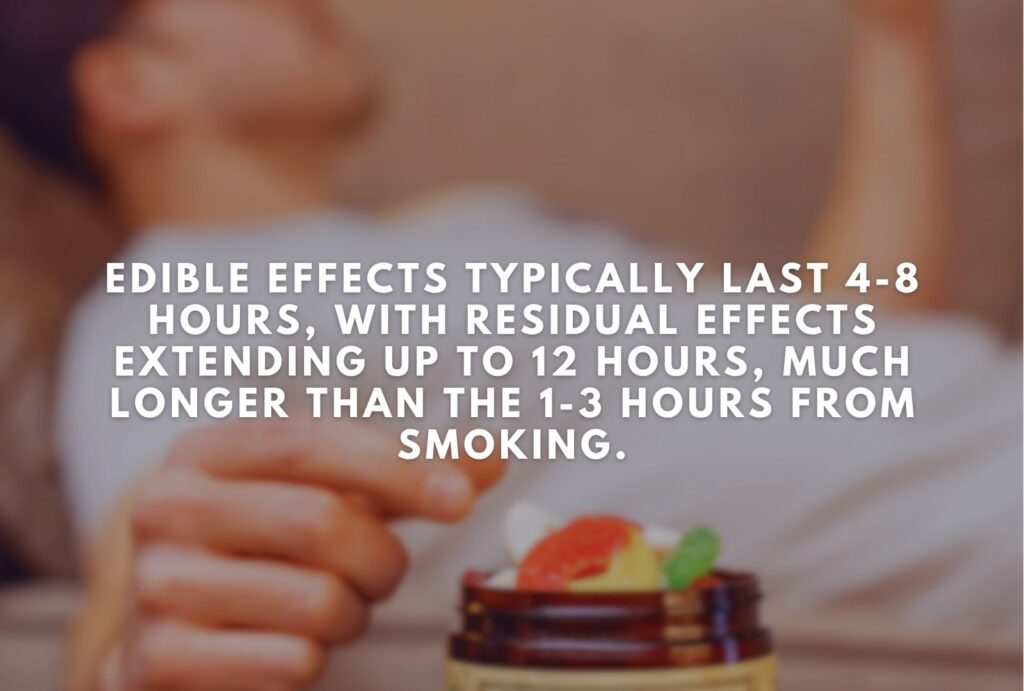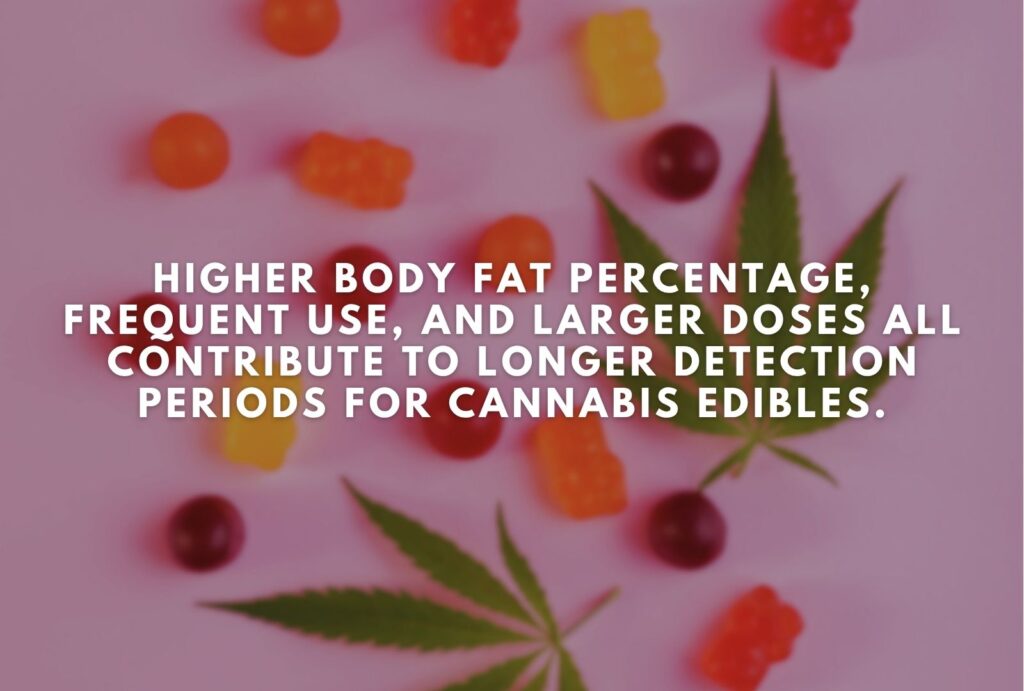Edibles generally stay in your system from 3 to 30 days, depending on factors such as dosage, frequency of use, metabolism, and the type of drug test used. The active ingredient in cannabis edibles, THC (tetrahydrocannabinol), remains detectable longer than smoked or vaped THC due to how the body processes and stores it.
Understanding these timelines helps you better anticipate how long edibles remain detectable in your body.

How Long Are Edibles Detectable by Drug Tests?
Edibles can show up on various drug tests for different durations. Typical detection windows include:
1. Urine Test (Most Common)
- Occasional users (1–2 times per month): detectable for 3–7 days.
- Moderate users (weekly): detectable for 7–21 days.
- Frequent or daily users: detectable for 30 days or more.
2. Blood Test
- THC from edibles typically remains detectable in blood for 1–2 days after consumption.
- Regular or heavy users may test positive for up to 3–7 days.
3. Saliva Test
- Edibles can be detected in saliva for 1–3 days, though shorter detection windows are common.
4. Hair Test
- THC from edibles can remain detectable in hair follicle tests for up to 90 days or longer, reflecting long-term usage patterns.
Why Do Edibles Stay Longer in Your System?

Edibles stay longer in your system compared to smoking or vaping due to several factors:
- Metabolic Processing: Edibles pass through your digestive system, liver, and bloodstream, producing a potent THC metabolite known as 11-hydroxy-THC, which remains longer in the body.
- Fat Solubility: THC is fat-soluble and stored in fat tissues, releasing gradually over extended periods, especially in frequent users.
- Slower Absorption: Edibles release THC slowly over several hours, prolonging its presence in your body.
Factors Influencing How Long Edibles Stay in Your System

Several individual factors determine how long edibles stay detectable in your body:
- Frequency of Use: Regular users accumulate more THC in fat tissues, leading to prolonged detection periods.
- Dosage: Higher doses increase detection times significantly.
- Metabolism: Faster metabolism eliminates THC metabolites more rapidly.
- Body Fat Percentage: Higher body fat levels retain THC metabolites longer, prolonging detection.
- Hydration and Diet: Hydration and diet influence how quickly your body eliminates metabolites. However, drinking water alone doesn’t significantly speed THC elimination.
How to Speed Up THC Elimination After Eating Edibles
There’s no guaranteed quick way to eliminate THC from your body, but certain practices might slightly speed up elimination:
- Stay Hydrated: Adequate water intake supports natural metabolic functions and detoxification processes.
- Exercise: Regular physical activity may help burn fat cells storing THC, potentially reducing THC levels slightly faster.
- Healthy Diet: Balanced diets rich in fiber help maintain efficient digestion and excretion.
Despite these steps, THC will still take several days or weeks to fully clear from your system naturally.

Do Edibles Affect You Longer Than Smoking or Vaping?
Edibles typically affect you much longer than smoking or vaping cannabis. The duration of intoxication from edibles usually ranges from 4–8 hours, with residual effects lasting up to 12 hours or longer in higher doses.
By comparison, inhaled cannabis effects typically last 1–3 hours, with rapid onset and quicker fading effects.
When Should You Consult a Professional?
Consult a healthcare professional if:
- You experience prolonged negative effects or discomfort after consuming edibles.
- You have upcoming mandatory drug testing requirements and need personalized advice.
- You feel dependence or excessive reliance on cannabis products is affecting your life.
For further information on cannabis, edibles, and their detection, consult reputable resources like the National Institute on Drug Abuse (NIDA).
Understanding the factors affecting how long edibles stay in your system helps you manage their use responsibly, avoid unwanted test results, and better control their effects on your body.